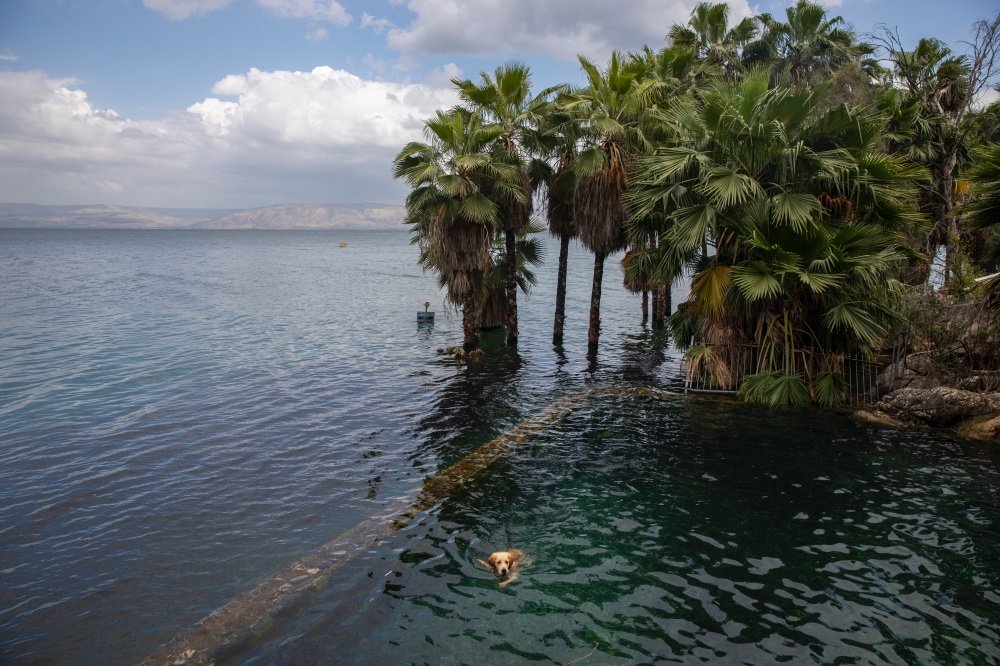After an especially rainy winter, the Sea of Galilee in northern Israel is at its highest level in two decades, but the beaches and major Christian sites along its banks are empty.
Tourism usually peaks in April, when Christians flock to the holy sites during the Easter season and Israelis descend on the beaches and nearby national parks to enjoy the spring weather and see the wildflowers bloom.
This year, that coincided with a lockdown aimed at preventing the spread of the coronavirus. The borders have been closed and Israelis have been largely confined to their homes since mid-March.
While authorities have recently begun loosening the restrictions, they imposed a full lockdown over Independence Day last week, barring anyone from traveling more than 100 meters from home except in case of emergency.
That left the shores of the Sea of Galilee, locally known as Lake Kinneret, empty. Chairs and umbrellas were stacked up on beaches that in previous years would have been packed with families enjoying outdoor cookouts and watching fireworks displays.
“It’s full of water and we are very excited,” said Idan Greenbaum, head of the Jordan Valley Regional Council. “Unfortunately, because of the virus, it’s empty.”
Christians believe Jesus did much of his preaching on the shores of the freshwater lake and even walked on its waters. Churches are built on the locations where he is believed to have miraculously multiplied loaves and fish, and where he delivered the Sermon on the Mount.
Read the article by Isaac Scharf in Sight Magazine.

